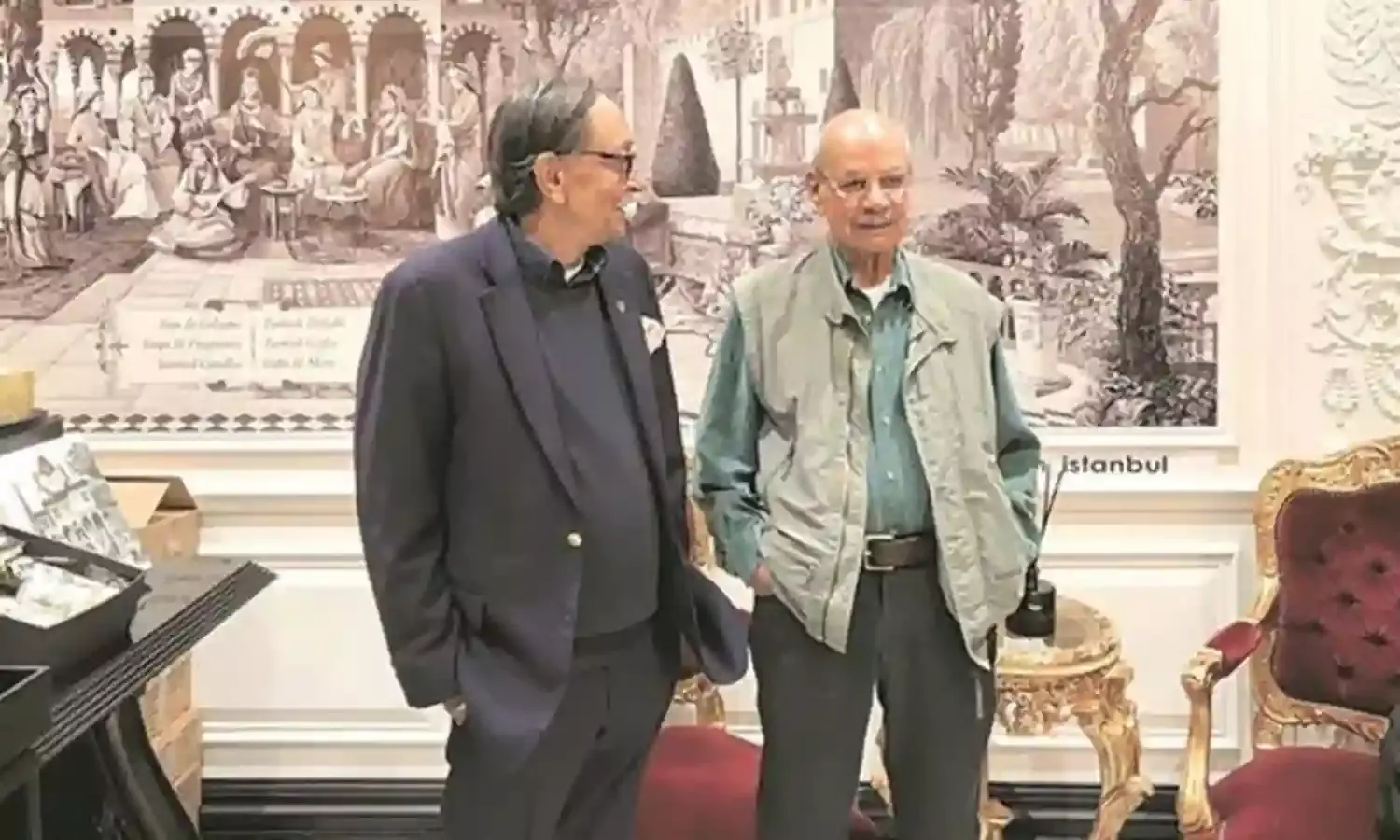'Status Quo in Kashmir Gets Pakistan Interested Again': RAW's Dulat & ISI's Durrani Pen The Spy Chronicles
Status Quo in Kashmir Gets Pakistan Interested Again

The much awaited book titled The Spy Chronicles: RAW, ISI and the Illusion of Peace, co-authored by India’s former spymaster Amarjit Singh Dulat and Pakistan’s former chief of the Inter Service Intelligence (ISI) Asad Durrani, is slated for release later today in New Delhi.
Durrani reportedly did not get the visa to attend the launch of a book that is essentially the result of conversations between the two in different capitals of the world, outside of course Islamabad and New Delhi.The conversations were moderated by journalist Aditya Sinha who has written the book as well. Both the spymasters talk about India-Pakistan relations, Kashmir and more.
Dulat, former secretary of India’s external intelligence wing the Research and Analysis Wing (RA&W), has also published a memoir Kashmir: The Vajpayee Years which was also written by Aditya Sinha.
In the new book by the two D’s belonging to arch-rival nation states talk about the politics of the subcontinent, shabby deals, Kashmir conflict, creation of the All Parties Hurriyat Conference (APHC) in 1993, missed opportunities for peace between India and Pakistan, Hafiz Saeed, Kulbhushan Jadhav, Osama Bin Laden, Atal Bihari Vajpayee, Parvez MusharraF, Mumbai attacks of 2008, and surgical strikes etc.
According to former ISI chief Durrani, the creation of the resistance amalgam APHC in Kashmir was important to provide a “political direction” to Kashmir’s ‘Azadi’ (independence) movement.
“I think that the formation of the Hurriyat to provide a political direction to the resistance was a good idea,” Durrani notes in the book.
Since the duo could not meet in either India or Pakistan, the meetings were only possible in Istanbul, Bangkok and Kathmandu.
Journalist Aditya Sinha moderated their conversations.
According to Durrani, it was not a good idea at all to allow a free hand to the resistance groups operating in Kashmir.
According to him, from the Pakistani perspective it wasn’t productive at all “giving up handle on the movement — letting the factions do what they bloody well wanted to…”
On his part, A.S Dulat while batting for breaking the status quo in Kashmir argues “… it’s now ‘game-on’ again in the last three years because of the uncertainty that we’ve created. The status quo mess we create gets Pakistan interested again.”
He also alleges that “The Hurriyat is the Pakistani team.... India has its team, Pakistan has its team, and the Kashmiris are in between.”
Interesting perspectives of the rival spymasters on important issues are bound to keep one hooked as a reader.
As Durrani and Dulat, former spymasters of Pakistan and India respectively, are releasing their co-authored book in Delhi, here is a recollection of what A.S. Dulat in his memoir Kashmir: The Vajpayee Years had documented about the Intelligence Bureau (IB) operations in Kashmir and the association of Kashmiri Pandits with the IB.
“If anyone in Kashmir had to abuse a political opponent, they would call him an IB agent,” A S Dulat wrote in his memoir (page 205).
On page 61, he noted that “the IB was most active, most feared and most denounced in Kashmir. The ISI (Inter Services Intelligence), itself being an intelligence agency and emboldened at having recently defeated the mighty Soviet Union in Afghanistan, knew exactly how key the IB was to the central government’s hold on Kashmir; it told the militants to target the IB.”
About the association of Kashmiri Pandits with the IB, Mr Dulat wrote that “Most of our officers on the ground were Kashmiri Pandits, who lived among the ordinary Kashmiri folk, and they made for easy targets.”
According to Dulat’s account, “The first IB officer shot was a Bihari, though: R.N.P. Singh. He was killed in Anantnag (south Kashmir), in broad daylight.”
Dulat argued that the Abdullah family was not fond of Kashmiri Pandits.
“The Abdullah family also felt that a lot of their problems were due to Kashmiri Pandits, who held disproportionately powerful positions in the government under Nehru and Indira Gandhi; the Abdullahs felt that Kashmiri Pandits carried lots of tales back to Delhi, and were thus highly untrustworthy. The IB, in J&K, had a fair amount of Kashmiri Pandits. One should not forget that when Sheikh Abdullah was arrested a conspiracy case was filed against him. It was put together by the IB…,” he wrote. (page 205)
Quoting Sheikh Mohammad Abdullah, Dulat wrote that “Sheikh Saheb even said once, I will see to it that these guys are packed off from here.”
Khalid Bashir Ahmad, a Kashmiri historian, author and former civil servant, in his book Kashmir: Exposing The Myth Behind The Narrative lends credibility to Dulat’s assertions.
Ahmad also while quoting Sheikh Abdullah in chapter four titled Power noted that “Towards his last days, while reflecting on his life and experiences, Sheikh Mohammad Abdullah described Kashmiri Pandits as ‘The Fifth Columnists’ and ‘The Instruments of Tyranny’.
Though the Kashmiri author Ahmad said that “The sweeping portrayal of a community by a person accused of having handed over Kashmir to India on a platter to answer the wishes of this miniscule minority looks incredible.”
In a candid admission in his memoir, Dulat also wrote that “As an IB/R&AW officer I knew I could never be trusted totally trusted by Kashmiri. Once, though, at a wedding in Srinagar, Sajad Lone and I came out together and he said that being invited to a wedding was the epitome of social acceptability in Kashmir. I passed that test on more than one occasion.”
Once The Spy Chronicles: RAW, ISI and the Illusion of Peace is formally released, the joint account of the two D’s, Durrani and Dulat, is expected to generate a lot of heat and create new controversies for sure.



